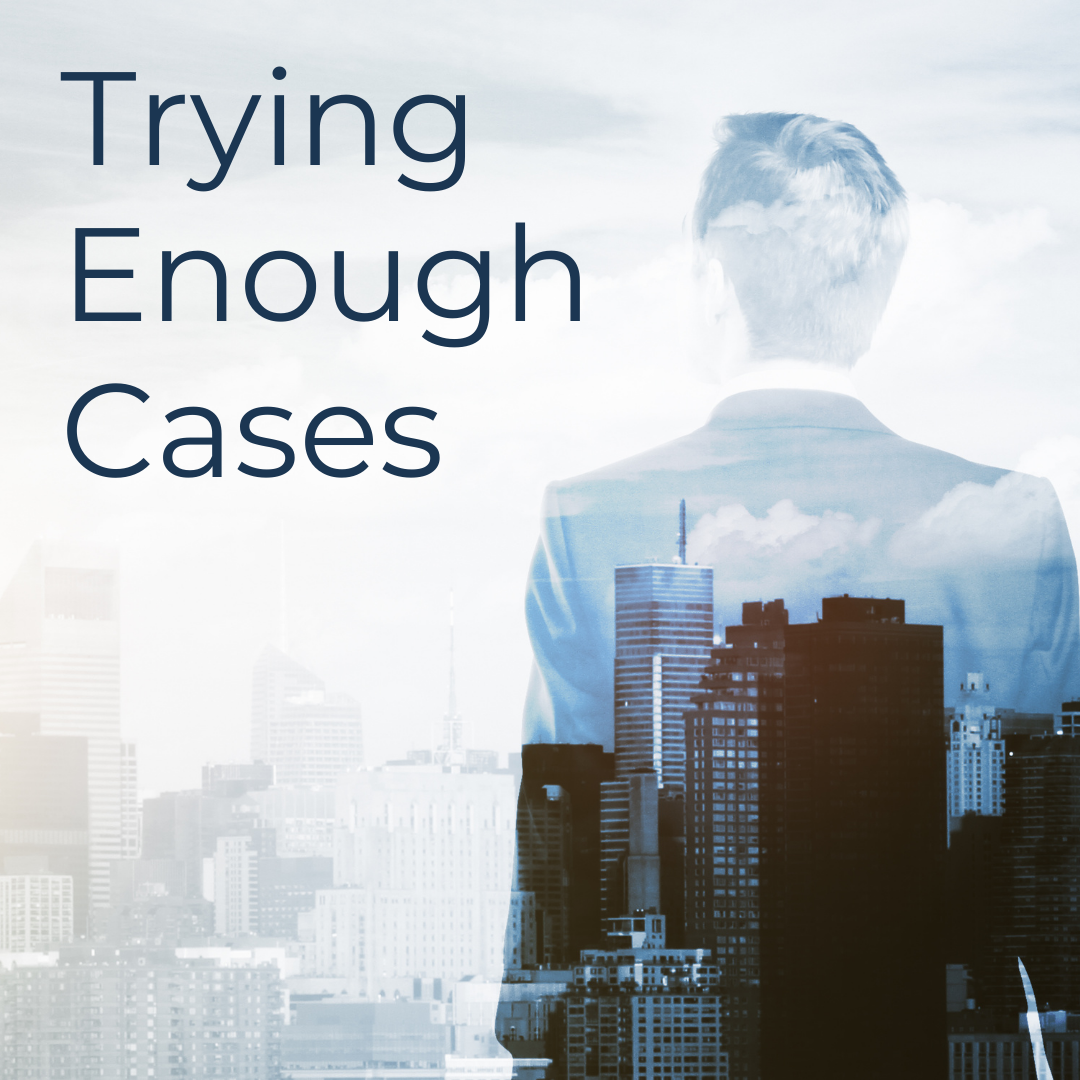
If you're winning all your cases, you're probably not trying enough cases.
— Weldon Funderburk
I began practicing law just as my dad, Weldon Funderburk, began the process of retiring from his work as a litigator, but as I slowly gained my footing as a young lawyer, he was a great source for good advice. He'd offer me little nuggets like this one: "It's easy to be bullish about somebody else's case." That is, if you're not the one whose name is on the pleadings and has to ultimately answer to the client, often you fail to fully appreciate all the warts and weak spots of a given matter. It's only when it's your responsibility to make the final call in a legal dispute that you begin to see the whole of a thing soberly and with clarity. Another of his lessons went like this: "The lawyers on the other side are probably just as worried about their case as you are about yours." This conveyed to me that just about every argument has some holes in it, and it behooves one to critically and strategically assess the weaknesses your opponent is facing, rather than to just become fixed upon your own. Finally, perhaps the best professional advice he ever gave me went something like this: "If you're winning all your cases, you're probably not trying enough cases."
While this guidance was given in the more narrow context of practicing law, as I've gotten older and, in fact, changed professions, I've recognized more and more that what he was saying applies to life more broadly. One shouldn't live always afraid of losing. One ought not live obsessed with a perfect record. And one can't live a full and worthy life when overly focused on eliminating or avoiding every possible mistake or potential pitfall. You're going to make some errors. You have to acknowledge this because living with a constant fear of the risk of loss is, in the end, worse than merely losing. While it's embarrassing to crash and burn in front of people, and it takes a toll on one's self-esteem to lose, so does failing to enter the fray at all. A life of timidity is not what God has called us to and not a terribly interesting or compelling way to live out your days.
Let me add one more thing. While most of the wisdom I received during my law career was from my father, whenever I did find myself in the middle of the challenge and difficulty of a jury trial, my mind would invariably turn to a book of counsel my mother gave me when I graduated from law school—a collection of Scripture arranged such that you could find just the right verse for almost any need at hand. When I required courage, anxious that I might stumble, lose, or fail, I'd always go searching for the advice Paul offered to Timothy back in the first century. He wrote his young protégé these words in the short volume we now call 2 Timothy: "For God has not given us a spirit of timidity, but of power and love and sound mind" (2 Timothy 1:7).
I don't know what you may have in front of you over the next few days, weeks, or the rest of this year, but if you're living within the spirit of this passage, recognize that some failure will and probably should be a part of it. Read Paul's words to Timothy again and let them quell your anxiety about this. Read them again if you're burdened by the fear of not always excelling, and once again if you're considering trying something new and difficult or beginning a new season of your life. Now read them one more time as you internalize the notion that failure is actually a crucial part of the alloy of which our existence is composed. It's part of living a good and rigorous life. That is to say, if you're winning all your cases, you're probably not trying enough cases.
Whatever it is that's ahead for you, approach it not with a spirit of dread, or fear, or timidity, but with the power of Christ in hand, the love of God in your heart, and with the sound and sober mind that's been bestowed upon you by the Holy Spirit.
God — May I learn to live more and more boldly without the fear of failing. Amen.
— Greg Funderburk





